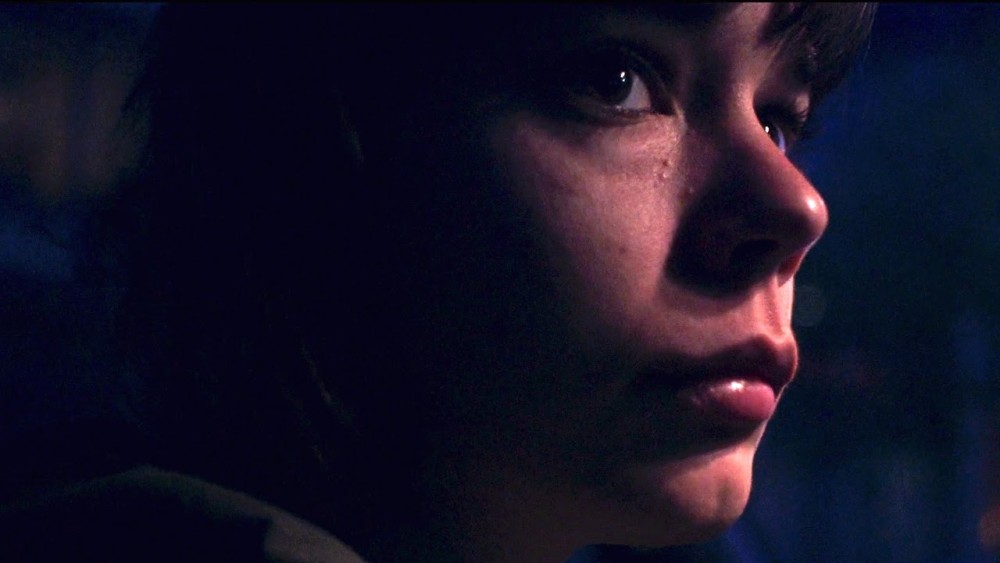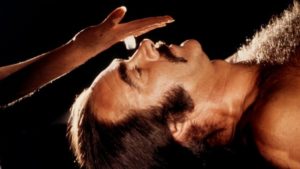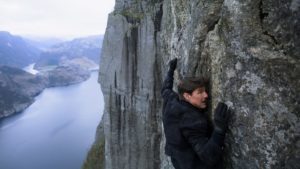
In a world where folks praise Birdman for the way it strings together a bunch of short scenes to make a movie that “looks like one long take” (even though the cuts are painfully obvious), it’s easy to forget there are actual movies that attempt being shot in one take. Russian Ark is arguably the best known, but this year, a new feature joins the limited club, and it deserves to be seen: Sebastian Schipper’s Victoria.
It’s a film that opens with flashing lights and smooth beats by DJ Koze as we meet our titular character, the Spanish young woman played by Laia Costa, dancing the night away hours before her morning shift at the coffee shop. The camera casually swoops into any action happening on screen, naturally rolling without a single cut as event after event happens without a care in the world: she meets four charming drunk men (Sonne, Boxer, Blinker, and Fuss), she sort of falls for one, and they drag her into a small bank robbery due to some unexpected circumstances.
If it sounds far-fetched, it’s because it is to an extent. There’s a certain willingness to suspend the disbelief that a woman would become the getaway driver for men she just met that the audience needs to fully fall in tune with the film’s beats, but it’s a testament to the writers and the cast that it’s not that much of a stretch. Rather than solely focus on the camerawork, Victoria offers three-dimensional characters that are easy to fall for. The first hour or so of the film is entirely focused on developing them as real human beings by establishing relationships between strangers, all complimented by the drunken naturalism in their dialogue and personalities.
It’s impossible to know how much was scripted and how much was improvised without engaging with filmmaker or cast interviews, but it’s a testament to how great the ensemble is that every awkward bit of flirting, every drunken stumble, every pant and shaken breath in a moment of unease, feels real. Scenes of heightened tension come at the audience at every moment, even prior to the robbery and its intense aftermath. One of the most riveting sequences actually comes minutes before she’s even dragged in for help, with Laia Costa furiously playing one of Franz Liszt’s Mephisto Waltzes as the camera slides from the piano to her concentrated face to Sonne’s bewildered face at her talent.
With the knowledge that this is a 138 minute film that was done in one take, no matter what preparations were taken, it’s clear that a lot of decisions had to be made on the spot. And somehow it all comes across as calculated in the best way by Schipper and his director of photography, Sturla Brandth Grøvlen, with the scenes rarely slipping away from the grasp of the filmmaker, and never a moment where a cut for convenience could have been inserted. Because of the nature of the narrative and the filmmaking, there are a lot of close-ups that give the film a sense of both intimacy and urgency, entirely necessary for scenes where the action is amped up (most notable in the under two minute robbery scene). This is not to say that in its final act, the film doesn’t have some trouble finding its footing to the finish line, but it’s hard to fault something this ambitious for wanting to do more with its time, especially when one can literally notice the slow shift from darkness to sunlight as the film progresses.
Schipper is equal parts talented and lucky to have managed to capture what he did in the allotted time, but even when it falters, the film works most of all because of Costa, a tremendous leading lady that one can’t look away from, even when she’s just fixing her hair on screen. And Schipper is well aware of this fact, getting up close and personal with her as often as possible. Just as she charms these drunken fellows, she charms the audience with her stories of piano conservatories and making iced cocoa. But she’s more than charm; she handles herself under pressure, she succumbs to fear but overcomes it just as well, and — in one of my personal favorite moments — she cries freely, letting snot and tears run down her face and onto sheets like any real human being would in the situation she’s found herself in.
And it’s that dedication to creating a film that feels free of artifice, of having to play with tiresome caricatures and of having to stage every scene perfectly for the sake of manufacturing a “one shot film”, that makes Victoria such a great viewing experience.
—
Editor’s note: an epilepsy/seizure warning should be tacked on to Victoria‘s opening sequence which is heavy on the strobe and may be rough for some to watch.
Directed by Sebastian Schipper; written by Olivia Neergaard-Holm, Sebastian Schipper & Eike Frederik Schulz; starring Laia Costa, Frederick Lau, Franz Rogowski, Burak Yigit and Max Mauff; 138 minutes.
Victoria is undergoing a limited theatrical release, with Coral Gables Art Cinema showing it in Miami.



 Derek
Derek
 Isabelle
Isabelle